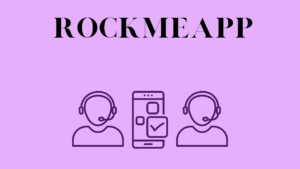Expat Coaching and the RockMeApp
Are you looking for Expat Coaching? Look no further! We now offer unlimited Expat Coaching with Angela Weinberger via our RockMeApp. This new and innovative service is here to revolutionize the Expat Experience and help you develop your leadership talent through Expat Coaching and our RockMeApp.
🌟 Why Should You Work With Us?
- We help your internationally mobile population feel better and be more productive.
- We bridge the gap between Talent Acquisition, Global Mobility, and Talent Development by giving more responsibility for their careers to the talent.
- We bring the Human Touch back into the expat journey in a fragmented industry with a highly outsourced workforce and high technological support.
- We use technology for enhanced support during off time.
- We care for expats’ mental health and well-being while improving performance and productivity.
🌟 How Can You Work With Us Coaching Your Expats?
Whether you’re an expat, expat family, Global Mobility Manager, Recruiter, or small business, you can choose an Expat Coaching license model based on your family or expat population size. We are ready to support you with our coaching.
Contact angela@globalpeopletransitions.com for a complimentary meeting to discuss all your options on Expat Coaching.
GET YOUR FREE ROCKMEAPP ACCOUNT
🌟 Meet Our Experts
Angela Weinberger and Usama Hafeez bring a wealth of knowledge and experience to the RockMeApp. Our academic research, years of experience working in Global Mobility and with expatriate leaders, and over a decade of running a global leadership coaching practice ensure you’re in capable hands. Usama Hafeez’s commitment to security guarantees the confidentiality of your conversations.
🌟 Available Expat Coaching Licences in 2024 🌟
RockMeAppSolo Artist |
RockMeAppDuo |
RockMeAppGarage Band |
|
|---|---|---|---|
 |
 |
 |
|
| Expat License | Couple or BFF License | Team License | |
| – 12 months | – 12 months | – 12 months | |
| One client | up to two clients | up to five clients | |
| Unlimited coaching with Expat Coach Angie Weinberger | Unlimited coaching with Expat Coach Angie Weinberger | Unlimited coaching with Expat Coach Angie Weinberger | |
| CHF 3’900 + VAT | CHF 7’500 CHF + VAT | CHF 17’900 + VAT |
|

Book your first complimentary meeting for Expat Coaching with Angela Weinberger to discuss your Expat Coaching needs on Calendly.
Resources
PS: Note from a Nerd (Angie W) on the Why of Expat Coaching
I summarized a lot of my research in a lecture held in February 2024 for the first time at Erasmus University, Rotterdam, called “Creating A Sustainable and Human Expat Experience (XX).” I cannot publish the full lecture content online for copyright and other reasons. However, here is why expat coaching makes sense in Global Mobility, especially in an Expat Hub like Zurich, Switzerland. For a deeper analysis of your situation and company program please schedule a meeting with me: https://calendly.com/angieweinberger. We will then consider a proposal for your population.
Improving the Experience for Foreign Local Hires and Permanent Transfers into Switzerland
Introduction: Navigating the Complexities
In an era characterized by rapid change and uncertainty, the landscape of global mobility is evolving at an unprecedented pace. As individuals and organizations navigate the challenges presented by the BANI world – characterized by brittleness, anxiety, nonlinearity, and incomprehensibility – the need for effective strategies to enhance the experience of foreign local hires and permanent transfers into Switzerland becomes increasingly imperative.
Megatrends Translated into Global Mobility
Drawing insights from themes highlighted by the World Economic Forum (WEF), including war and peace, trust in governments, gender equality, sustainability, and advancements in AI and cybersecurity, provides a holistic framework for addressing the multifaceted challenges of global mobility. We see five megatrends that all influence Global Mobility across the world. The five megatrends originally from PwC have not changed.
The Ten Commandments for Global Mobility Manager
The “Ten Commandments” for Global Mobility Management serve as a moral compass, emphasizing the importance of prioritizing the needs and well-being of expatriates while navigating the complexities of international assignments.
The Human Resources Function in Crisis
HR needs to find its purpose again in a reality of agility.
Adapting to Changing Realities: Amidst demographic shifts and changing workforce expectations, the Human Resources function faces unprecedented challenges in meeting the diverse needs of employees across different generations and demographics.
Generations at Work Drive the Need for DEIB
- Navigating Intergenerational Dynamics: Understanding the unique characteristics and expectations of each generation in the workplace is crucial for fostering collaboration, communication, and cohesion across diverse teams.
- The Need for Diversity, Equity, and Inclusion: Embracing diversity, equity, and inclusion not only fosters a more equitable and supportive work environment but also yields tangible benefits regarding employee engagement, productivity, and organizational performance.
- Psychological Safety: Creating a Supportive Work Environment and Prioritizing psychological safety is essential for empowering employees to express themselves authentically, take risks, and contribute to innovation and growth.
Sustainability in Global Mobility
- Balancing Business Needs and Environmental Responsibility: As organizations strive to align their mobility programs with sustainability goals, there is a growing imperative to optimize the effectiveness of international assignments while minimizing environmental impact.
Addressing Pain Points for Expats
Navigating Challenges and Enhancing Support
Addressing the pain points experienced by expatriates, from immigration processes to cultural adaptation, requires a multifaceted approach that encompasses logistical support, cultural integration, and access to resources and networks.
Refining the “Box of Chocolates”
Customizing Support for Individual Needs
By adopting a more personalized and inclusive approach to global mobility support, organizations can enhance the experience of expatriates and their families, ultimately fostering greater engagement, satisfaction, and success in international assignments.
In conclusion, improving the experience for foreign local hires and permanent transfers into Switzerland requires a nuanced understanding of the complex interplay between individual needs, organizational priorities, and broader socio-economic trends. By prioritizing diversity, equity, and inclusion, fostering psychological safety, and embracing sustainability, organizations can navigate the challenges of global mobility with resilience and integrity.

